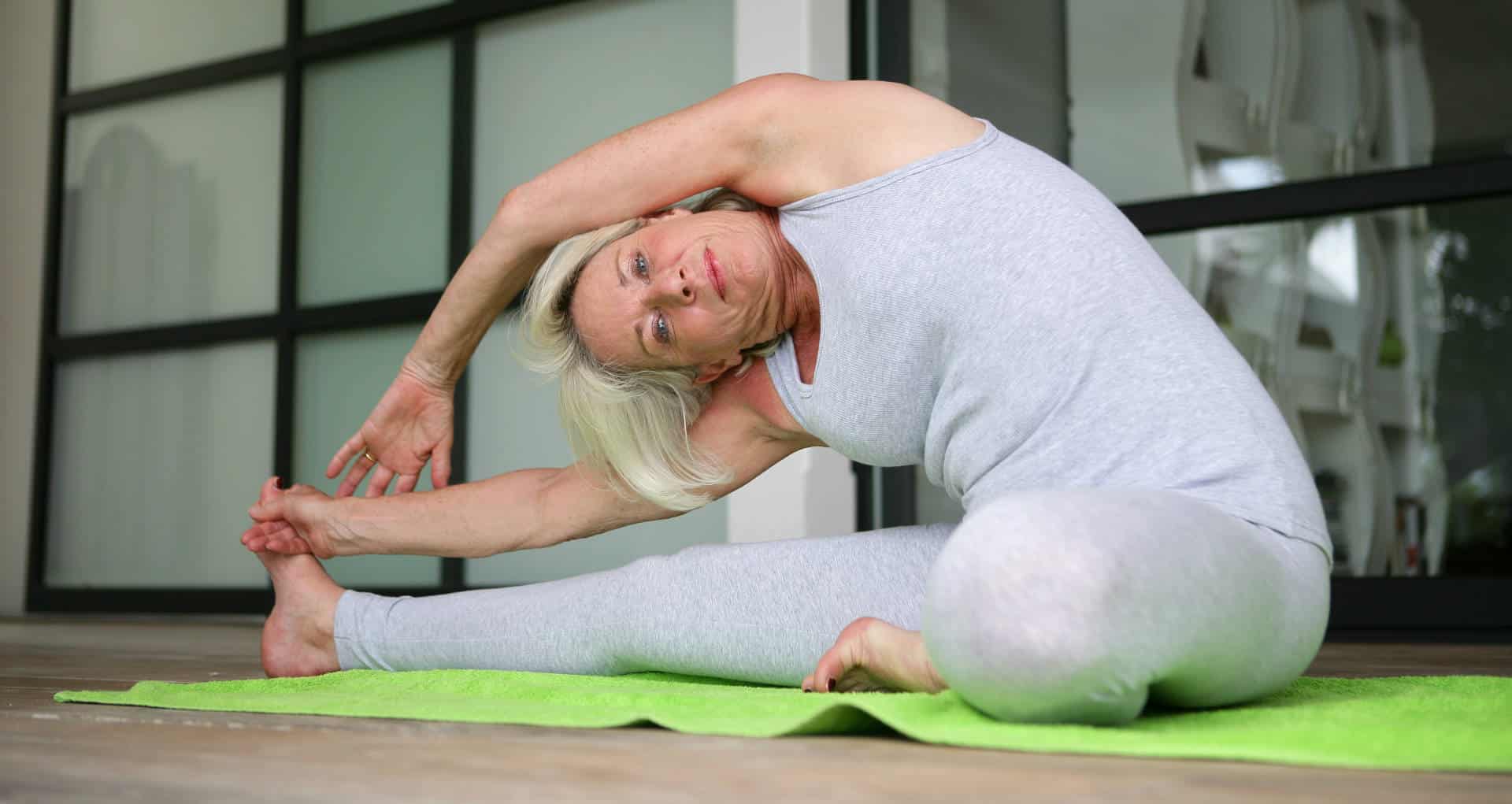The practice of yoga for grief may seem daunting at first glance.
Contemporary media and fitness magazines depict model-thin women in the prime of their lives twisting into the most advanced expression of pretzel-like postures. They are strong; they are at peace; they radiate joy.
If someone you love has died, the odds are you do not identify with the image above. In fact, you may feel quite the opposite. The grieving body seems to collapse inward, the mind runs wild, and joy is nowhere to be found. The image of yoga is painted with vivid oils, while grief is rendered in a muted gray.
Grief and yoga have something in common; both are rooted in love. Grief is love. Yoga is love. You grieve because you care. Yoga will invite you to recognize that love and offer it towards your whole self: body, mind and spirit.
Grief and yoga provide the potential for growth. Grief forces you to change by assigning you unexpected roles, removing physical, emotional, and material resources you once had, and changing your assumptive world into a new and unfamiliar landscape. You may not even recognize yourself. Yoga invites you to go beyond the stories you tell yourself about what is happening and open to satya, or truth. Yes, you feel devastated. But you are still here; you are still breathing. The truth is you are not destroyed.
From the ashes of grief the ground of love will be fertilized, the body will begin to open back up, and you will arrive changed, but intact, on the other side. In the beginning it may seem like an impossible journey, but through the practice of yoga you will advance step by step by step.
Yoga is a forgiving endeavor. It does not require you to show up in any way other than how you are. A friend once observed that “there is no Super Bowl of yoga.” There is no need for you to perfect a posture so that others can approve of you. You don’t even have to do a posture in any particular way to experience the benefits. All you have to do is practice, not perform. You don’t even need to be in a good mood, calm, or hopeful. Just showing up is enough.
What a relief.
The word yoga means to yoke or join together. It unites the mind, body and spirit and teaches you that you are already whole. You will learn to steady your mind by focusing on your body, to calm overwhelming thoughts by focusing on your breath.
The practice of yoga does not discount your experience of grief or sadness, rather it gives you a seat in the theater of your life; it is a chance to witness the events of your life unfold externally, so you can learn to steady your internal world no matter what scene you are in. No longer a passive participant in your play, you will learn that you have the power to direct yourself towards health, balance and well being.
If you are already practicing yoga you are aware of its ability to calm your mind and restore your body as it simultaneously builds strength and flexibility, however you may have some of the same concerns “coming to the mat” that those who are new to this practice.
First, you may be overly exhausted, physically weak and feel like you don’t have any energy to put into a physical practice. There is no doubt that grief may leave you feeling depleted. Second, you may feel like your mind is moving at such a rapid pace there is no hope of slowing down, so why bother. Third, your heart may not feel open to practice, as your spirit feels irreparably damaged.
These are exactly the reasons why you need to practice yoga for grief. Right now you are like a jar filled with water and sand that has been shaken vigorously. Yoga will allow the sand to settle.


